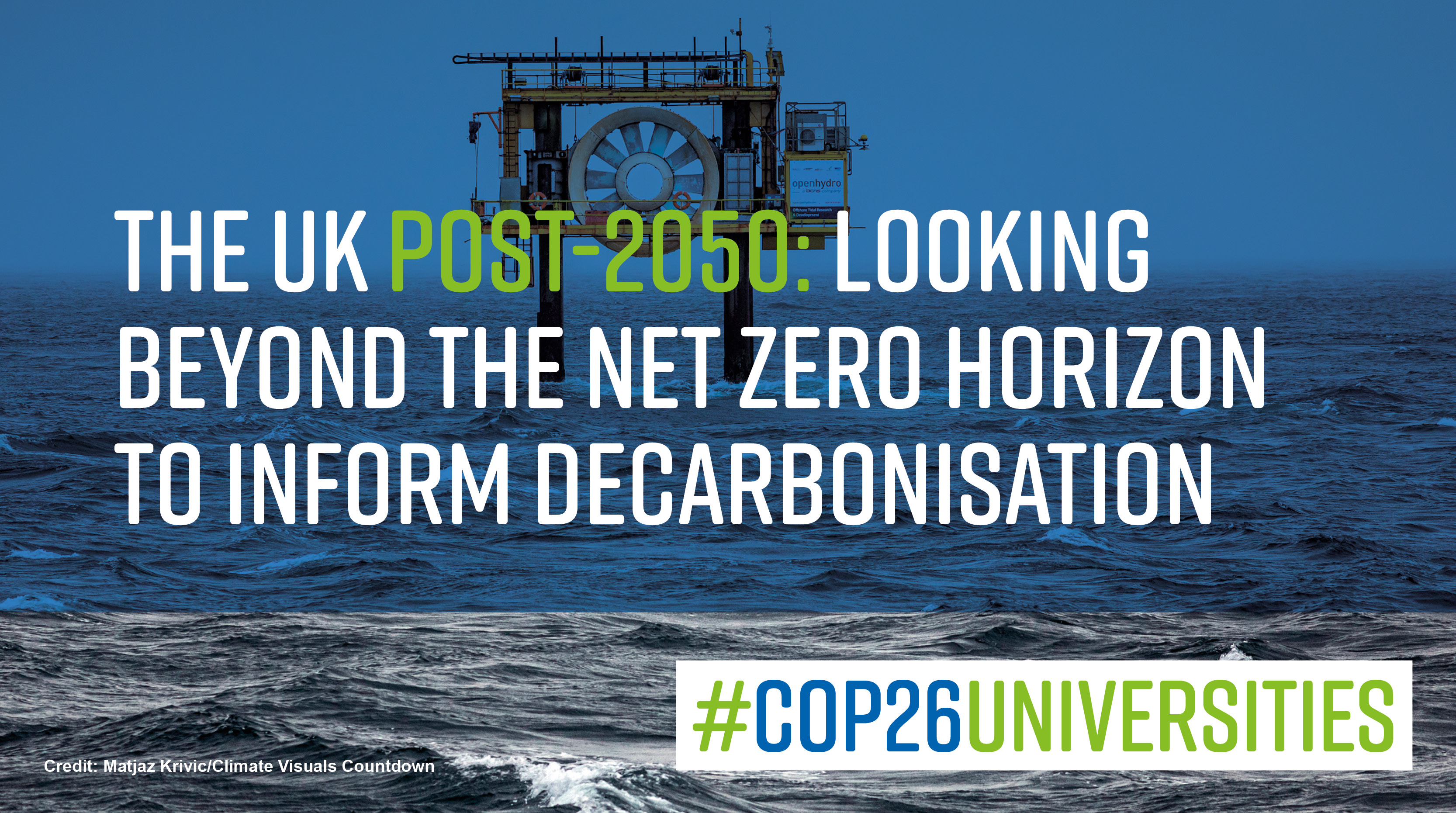New College student part of the team behind COP26 Universities Network briefing released this week
New College's Luke Hatton was part of an inter-university student team that has published a briefing exploring how UK net zero policy design can incorporate long-term perspectives.
The briefing, The UK post-2050: looking beyond the net zero horizon to inform decarbonisation, was written by eleven students from seven universities across the COP26 Universities Network. It analyses the long-term implications of net zero policymaking in the UK and explores the need for an increased focus on young and future generations' interests, while maintaining the urgency of far-reaching and ambitious policy today.
The paper comes at a critical time - ahead of the United Nations COP26 Climate Change Summit, which takes place in Glasgow this November.
Luke, a 4th year Engineering student at New College and President of the Oxford Climate Society, wrote about his experience for us:
'I'm very grateful for the chance to have contributed to the first student-led policy briefing for the COP26 Universities Network, which explores the long-term implications of net zero policymaking in the UK. Ambition for climate action often stops at 2050, with little thought given to the challenges and opportunities the next generation will face post-2050 because of current 'baked-in' policies associated with the transition to net zero.
Working alongside ten authors from seven universities across the UK, over the past few months we explored three net zero policy case studies (energy systems, carbon removal & international leadership) to identify how integrating long term perspectives can strengthen policy decisions taken today.
I was part of the team working on the energy systems case study and was responsible for the section on decommissioning of renewable energy installations. This highlighted the need to consider the end-of-life management of offshore wind installations, as currently a significant proportion of the material (especially the turbine blades, made from unrecyclable composites) ends up in landfill. With the UK having recently released ambitious targets for new offshore wind generation by 2030, consideration of how the waste from these installations will be managed at their end of life in 25-30 years will be critical to a truly sustainable energy transition.'

More about the paper
The paper explores three net zero policy case studies, focusing on energy systems, carbon removal and international leadership, to highlight how integrating long-term thinking can strengthen the policy decisions made today.
The authors argue that short-termism is a fundamental challenge to achieving net zero emissions in a way that respects the interests of future generations. They make a set of recommendations to integrate a long-term perspective into UK net zero policymaking. These include:
- Establishing secure and transparent supply chains for the resources essential to a low-carbon energy system
- Increasing funding for R&D into solutions for energy system waste disposal and recycling
- Ensuring robust regulation of geological carbon storage with a focus on monitoring the permanence of storage
- Increasing afforestation while also deploying education programmes to shift consumption patterns and ease land-use competition
- Establishing a Climate Action Unit within the FCDO to drive long-term international climate leadership by the UK
- Institutionalise a long-term perspective into climate policymaking, for example, by widening the remit of the Climate Change Committee to include the assessment of the long-term consequences of proposed policy.
Established in 2020, the COP26 Universities Network brings together more than 80 UK universities and research institutes. They aim to improve access to evidence and academic expertise for the UN Climate Summit in Glasgow for the UK Government, NGOs and the international community, working together to deliver ambitious climate change outcomes.
The author group would like to thank all the academics who offered their expertise to this project.

